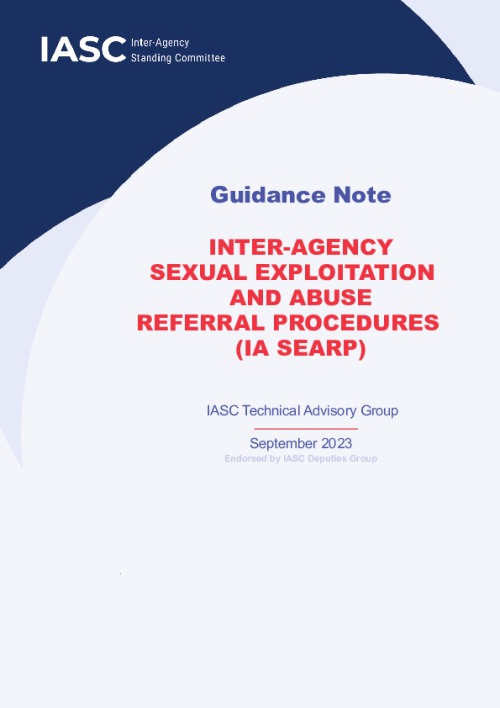pdf

IASC Guidance Note on Inter-Agency Sexual Exploitation and Abuse Referral Procedures (IA SEA RP)
The purpose of this Note is to provide guidance on a standardised model of procedures for inter-agency referral of SEA complaints and survivors, for use when designing or updating country-level procedures. The objective is that when an SEA complaint is received it is referred to any concerned entity for appropriate support to victim(s)/ survivor(s), follow-up and investigation” in accordance with a Victim/Survivor Centered Approach.
For annexes, please visit here.